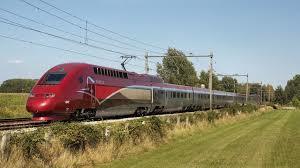On flight shame - Rebecca Tuhus-Dubrow in NYRB:
'I for one do not begrudge Thunberg her adventure, which also illustrates another favorite argument advanced by non-flyers: that abstaining from air travel can be a blessing, that slower modes of transit offer richer experiences. Thunberg’s trip certainly seemed more exhilarating than any transatlantic flight I’ve taken. (She was able to document the trip by using a satellite phone to send photos and messages to friends, who posted them on Twitter. “Some dolphins showed up and swam along the boat last night!” she wrote on Day 2.) But it is also worth noting the limitations of her trip as a model: most of us do not get offered free rides across the ocean on a solar-powered yacht.
A more fruitful alternative might be the concept of “flying less,” which is analogous to “reducetarianism”—the practice of cutting back on animal products, without renouncing them altogether. Flying less seems both more feasible on a large scale and focused less on personal purity than on achieving a broad impact.
In Sweden, there is some evidence that public awareness of this issue may have shifted consumer choices, with a recent dip in air travel and a rise in train travel. (The counterpart to flygskam is tågskryt, or train-bragging.) But the global picture looks quite different. A decade after George Monbiot wrote that most planes would need to be grounded, the International Civil Aviation Organization (ICAO) announced that in 2017, the industry had carried a record-breaking 4.1 billion passengers, a 7.1 percent increase over 2016. By 2037, the International Air Transport Association projects that passenger numbers could double, to 8.2 billion. And it’s not just personal travel that’s on the rise; air cargo has increased globally, with freight traffic up 9.5% in 2017.
As Wilde points out, aviation exceptionalism extends far beyond the realm of individual consumer choice; it is systemic, influencing public policy on a transnational scale—with air travel winning exemptions from international agreements, including the Paris accords, and tax breaks on jet fuel. In France, it is widely known that the gilets jaunes protesters have loudly opposed a proposed tax on diesel fuel for their cars; less publicized is that they have proposed a fuel tax on airplanes as an alternative. They see it as an issue of social justice: Why should working-class folks bear more of a burden than affluent jet-setters? Other activists, such as the British environmental group Plane Stupid, have protested airport expansions, sometimes by blocking taxiways with their bodies.
While our personal travel habits can play a role in shifting the culture, more systemic and institutional changes will obviously be needed if we are to have any hope of curbing emissions from aviation. Universities that boast about their LEED-certified buildings but encourage excessive flying among their faculties; governments that neither tax jet fuel nor invest in low-carbon ground travel infrastructure—the people behind these decisions are the ones who really ought to get acquainted with flygskam.'
Read the article here.
I admit that I'm a frequent flier, but I'm all in favor of flying less. An example, it is at least ten years ago since I took a plane from Paris to Amsterdam. The train is faster and more convenient. This rather mundane insight was missing in the article, if you want us to fly less build more and better high-speed trains.
